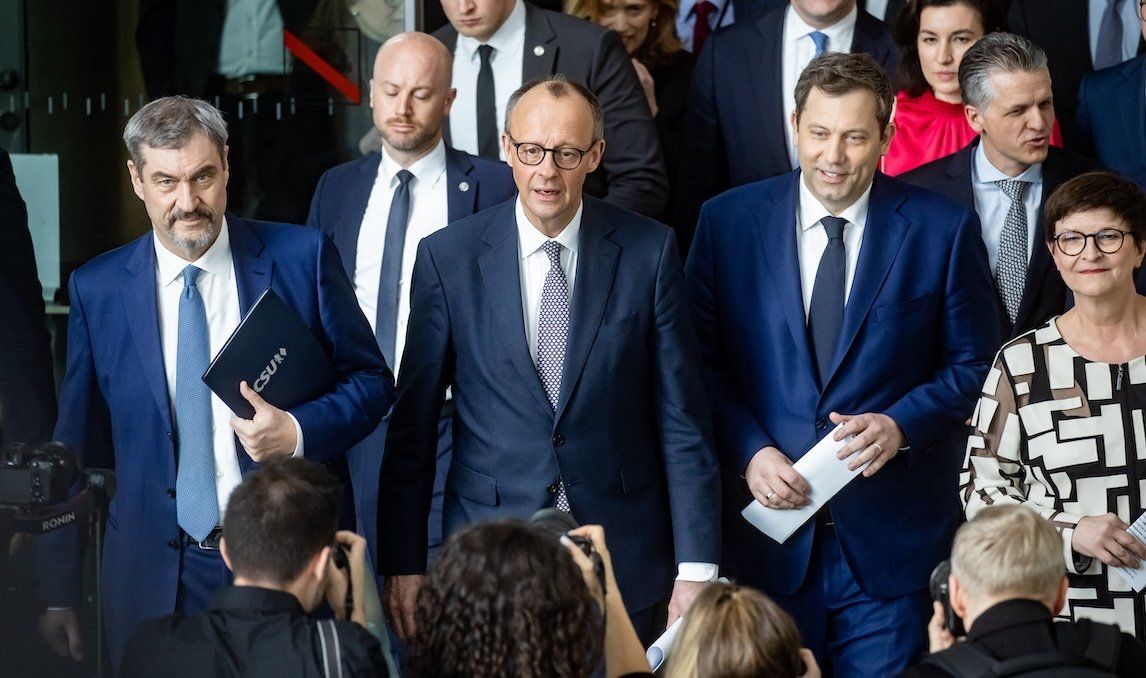Germany’s leading establishment parties reached a grand coalition deal on Wednesday, bringing Europe’s largest economy a step closer to having a formal government amid severe domestic and global challenges.
The timeline: The deal between the conservative CDU/CSU, led by likely-Chancellor Friedrich Merz, and their rival Social Democrats, or SDP, requires formal approval in the next several weeks. The new government should be in place by May.
They’ve got their work cut out. The Trump administration’s America First approach is forcing Berlin to increase defense spending while also tending to a sluggish economy that will be further maligned by US tariffs. Meanwhile, social tensions over the impact of mass immigration persist.
Plus: These parties aren’t popular. The CDU placed first in the February elections but has shed support since then, partly because it struck a deal with the SDP to skirt long-standing debt limits to fund a big defense spending boost. That deal would not have passed the incoming Bundestag, given the strong electoral performance of the anti-establishment parties.
The numbers don’t lie: Polls already show the far-right, anti-immigration AfD, which Merz has sworn not to work with, is now – for the first time – the most popular party in Germany.